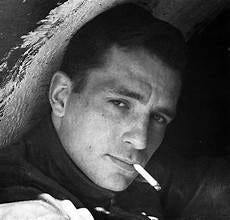As 2024 winds down I have been reflecting back on the countless books I’ve read during my life. Many of them stick with me somewhere in my brain or bouncing around in my soul. Some stories have of way of grabbing onto you, or maybe it’s that some part of us hangs on to those stories that have some kind of deep meaning to us.
One of the themes I love to write about is concerning that place where you lose yourself and then find yourself. It doesn’t have to be a physical place, per se, but you get my meaning. One classic novel of the 20th century that stuck to me was Dharma Bums by Jack Kerouac. Published in 1958 it is a cornerstone of Beat Generation literature and a crazy and profound exploration of nature, spirituality, and the search for meaning. Kerouac wrote this book shortly after the release of his biggest success, On the Road. Dharma Bums was a very deep and introspective look into his own life, although written as fiction. It was reflective of his growing interest in Buddhism and his own journey and search for enlightenment.
This might be a bit of a spoiler, but the novel follows Ray Smith (the fictionalized version of Kerouac) and his friend Japhy Ryder (based on poet Gary Snyder). They set out on a journey across America’s landscapes and spiritual terrain. Along the way they find themselves at some wild parties in the bohemian section of San Francisco to long meditative hikes in the Sierra Nevada Mountains. This novel is a mixture of serene nature and spirituality with moments of feral hedonistic abandon. It is Ray’s attempt to reconcile his craving for a life of simplicity and mindfulness with the pleasures of the material world.
While some obvious themes are the spirituality of Buddhism and nature, there is another element that can only be described by me as that “Beat Vibe.” The questioning of social norms and searching for deeper meaning and truth that was a part of that time leading up the eventual hippie movement in America.
Dharma Bums was an inspiring novel to certain corners of American society in the 1960’s. The themes of this book (and to a lesser extent, On the Road) became the cornerstone to the hippie movement, although Kerouac seemed to personal despise hippies and wanted to connection to them.
One of the major things I took away from the book was his introduction of Zen practices. At the time these concepts were unfamiliar to the culture for the most part. Critics were mixed on the book, but it has endured the test of time. Probably because the tension between modern life and spiritual fulfillment still resonates with readers to this day. It is a timeless struggle.
Put this book on your reading list.




